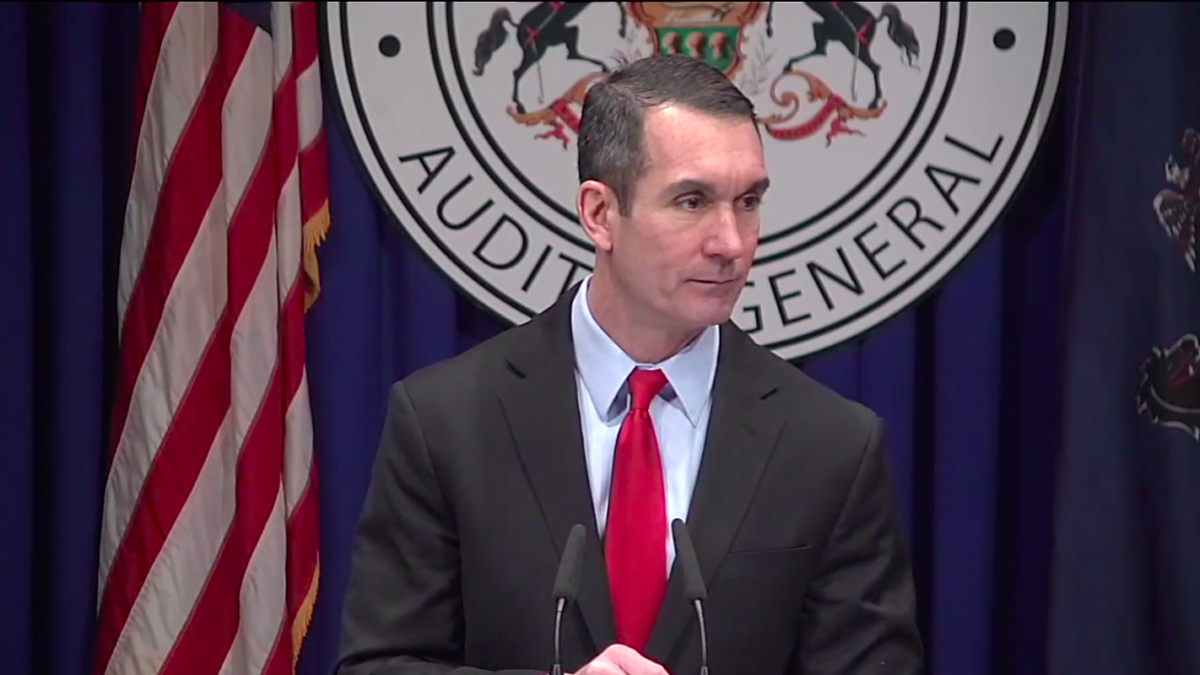In a press conference on Feb. 22, Pennsylvania Auditor General Eugene DePasquale lambasted Philadelphia’s City Commissioners’ lack of transparency in choosing its new voting election equipment.
In a deal that could be as high as $50 million, according to DePasquale, Philadelphia’s elections committee selected controversial company, Election Systems & Software. ES&S came under scrutiny late last year when it was found that Luzerne County’s elections director had accepted gifts, including a free trip to Vegas, from the Omaha, Nebraska-based company.
After the incident Luzerne County, DePasquale underwent a review of 67 counties and the purchase of voting systems. In accordance with the Pennsylvania Department of State’s ruling last April, counties must implement a new voting system in time for the 2020 primary, and ideally by the November 2019 general election.
During the press conference, DePasquale announced that 18 counties admitted to accepting gifts from voting machine vendors since 2013. Gifts included paid trips, wine festivals and distillery tours, meals at high-end restaurants, tickets to amusement parks, and rides on a Pittsburgh roller coaster.
WATCH: Auditor General Eugene DePasquale sounds off on voting lobby
“The crime here is that no one did violate the law,” said DePasquale. Lobbying is a legal practice, and officials only need to disclose their acceptance gifts if they exceed $250 or lodging over $600. But while it may not be illegal, DePasquale noted “it’s just stupid considering how much scrutiny this issue is facing,” particularly with the upcoming 2020 presidential elections. He also stated that the state should strengthen its lobbying and disclosure rules, legislature which Gov. Tom Wolf has been working on.
“I’d love to know how a lobster dinner and a distillery tour offers any insight into how these machines work best for your voters,” continued DePasquale, adding that he will be handing over his findings to the ethics committee.
In a late response to DePasquale’s letter requesting further information, the Philadelphia City Commissioners denied allegations of accepting gifts from bidding vendors. The response letter included Nick Custodio, Seth Bluestein, Michelle Montalvo, Commissioner Al Schmidt and Commissioner Lisa Deeley.
As to why Philadelphia chose ES&S, the letter read in part:
“There are many unique characteristics about Philadelphia’s elections that require a responsible evaluation to include a conversation on ballot face and physical footprint of a system. We are under a consent decree with regards to the handicapped accessibility of our polling places so the ability of a system to fit into our existing polling places and not require major changes in where people vote is a positive factor. We also have a large ballot that sometimes attracts larger candidate pools not seen elsewhere in the state. The ability to display all candidates on a screen and the whole ballot on the fewest number of screens as possible is a positive factor. This is balanced out against price, vendor diversity, training, technical support, and ability to deliver a secure, certified system.”
However, DePasquale is still concerned over whether Philadelphia was swayed to choose ES&S for reasons other than what’s best for the county. DePasquale noted that Philadelphia’s Request for Proposals (RFP) back in November appeared “to favor one vendor.” The auditor general recommended at the press conference that the City should review the matter, and if a conflict of interest is found to then reject the ES&S bid altogether and start over.
In the Commissioner’s letter, it contended that the RFP was written when there was only one certified system, Unisyn, and that there was no guarantee that the other bids would be certified by February 13th. The City had fast-tracked its overall process to implement voting machines well before the 2020 elections but had delayed their final decision a week to allow the City’s Procurement Department more time to negotiate the recommendations made by the selection committee.
The public relations manager of ES&S, Katina Granger explained that Philadelphia’s chosen model, the ExpressVote XL “allows voters to see a full ballot on a 32-inch interactive screen and produces an independent voter-verifiable paper record, in accordance with the Pennsylvania Department of State’s mandate for voter-verifiable paper record voting systems. Ballots cast with the ExpressVote XL [can be fully audited].” Moreover, Granger emphasized the “above the line” standards of ES&S over its 40 years of existence.
When asked about the company’s past lobbying with Luzerne County and DePasquale’s current investigation of elections committees accepting gifts from voting machine vendors, Granger stated on Feb. 21, a day before DePasquale announced his findings:
“We are not aware of any details in General Auditor Eugene DePasquale’s audit. Lobbying is a normal practice and is common across all industries. It is governed by state and federal laws and regulations, and ES&S complies with each law and regulation.”
DePasquale did not spend his time solely to criticize counties’ election committee processes. He also praised specific counties, such as Mifflin County for its prompt response to his inquiry and thorough financial reporting. In addition, DePasquale pointed to Montgomery County as an example for others, supporting its choice of Dominion Voting Systems. Montgomery County’s new voter-marked paper balloting system makes voters fill out ballots in pen but also includes an ADA touchscreen as an alternative option.
TWITTER: @ANDREAJCANTOR




